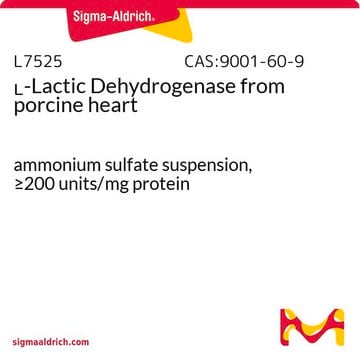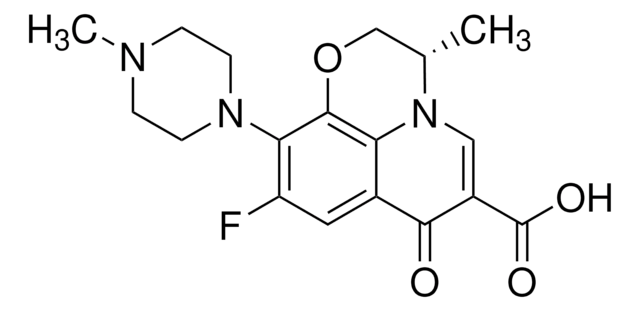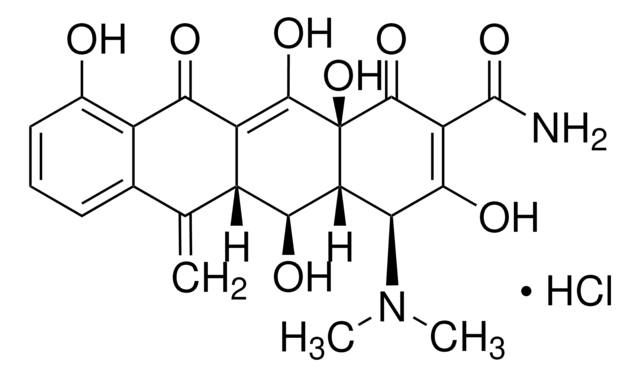M9511
Minocycline hydrochloride
powder, antibiotic
Synonym(s):
Minomycin
About This Item
Recommended Products
product name
Minocycline hydrochloride, powder
form
powder
Quality Level
antibiotic activity spectrum
mycobacteria
Mode of action
protein synthesis | interferes
originator
Teva
storage temp.
2-8°C
SMILES string
Cl.CN(C)[C@H]1[C@@H]2C[C@@H]3Cc4c(ccc(O)c4C(=O)C3=C(O)[C@]2(O)C(=O)C(C(N)=O)=C1O)N(C)C
InChI
1S/C23H27N3O7.ClH/c1-25(2)12-5-6-13(27)15-10(12)7-9-8-11-17(26(3)4)19(29)16(22(24)32)21(31)23(11,33)20(30)14(9)18(15)28;/h5-6,9,11,17,27,29-30,33H,7-8H2,1-4H3,(H2,24,32);1H/t9-,11-,17-,23-;/m0./s1
InChI key
GLMUAFMGXXHGLU-VQAITOIOSA-N
Looking for similar products? Visit Product Comparison Guide
Related Categories
General description
Application
- to prepare nanoliposomes to check its effect on macrophages
- for the inhibition of neuroinflammation and neuropathic pain
- to treat glioma in murine GL261 glioma cells
Biochem/physiol Actions
Features and Benefits
Packaging
Storage Class Code
11 - Combustible Solids
WGK
WGK 3
Flash Point(F)
Not applicable
Flash Point(C)
Not applicable
Personal Protective Equipment
Certificates of Analysis (COA)
Search for Certificates of Analysis (COA) by entering the products Lot/Batch Number. Lot and Batch Numbers can be found on a product’s label following the words ‘Lot’ or ‘Batch’.
Already Own This Product?
Find documentation for the products that you have recently purchased in the Document Library.
Customers Also Viewed
Our team of scientists has experience in all areas of research including Life Science, Material Science, Chemical Synthesis, Chromatography, Analytical and many others.
Contact Technical Service










